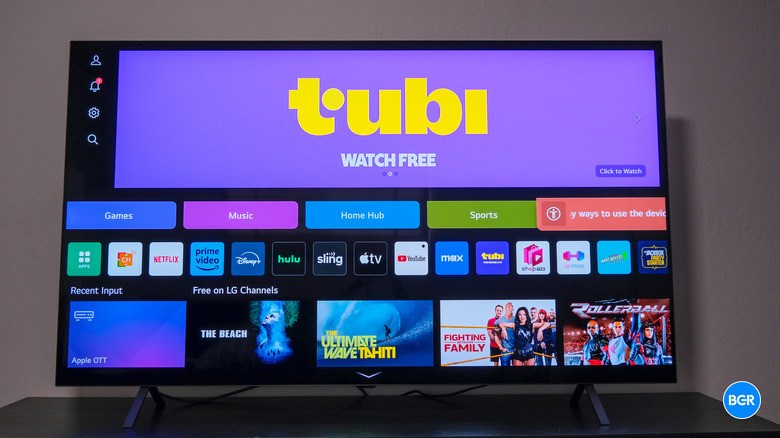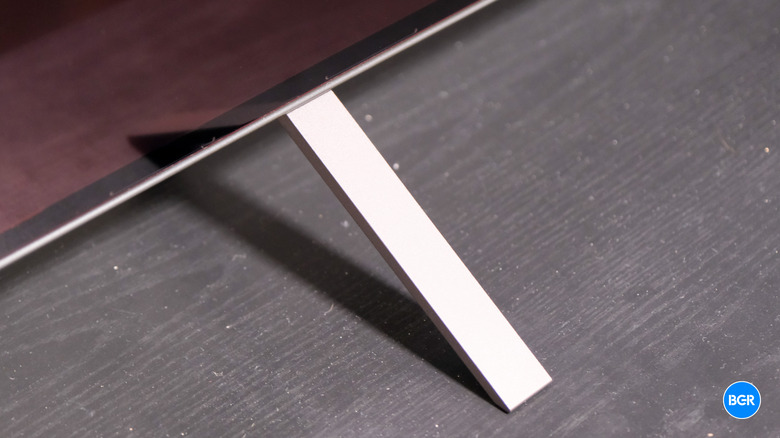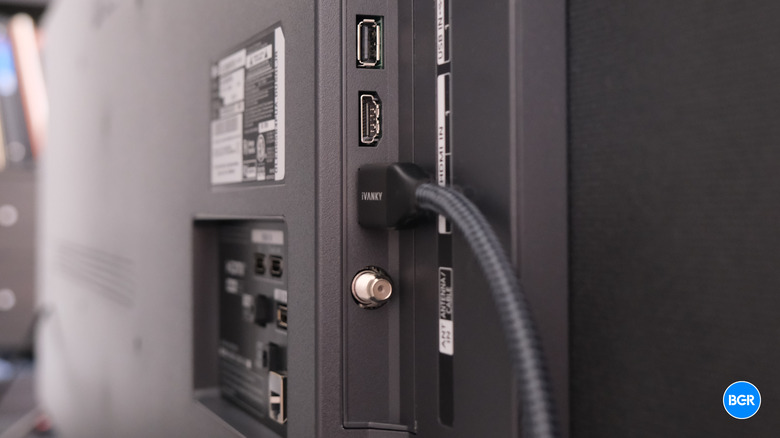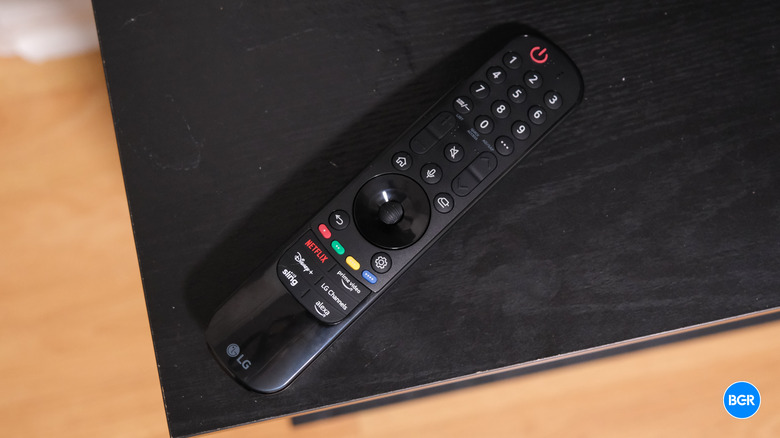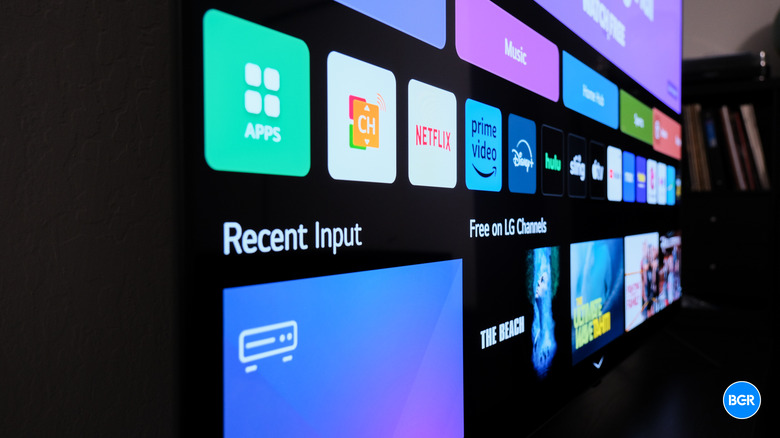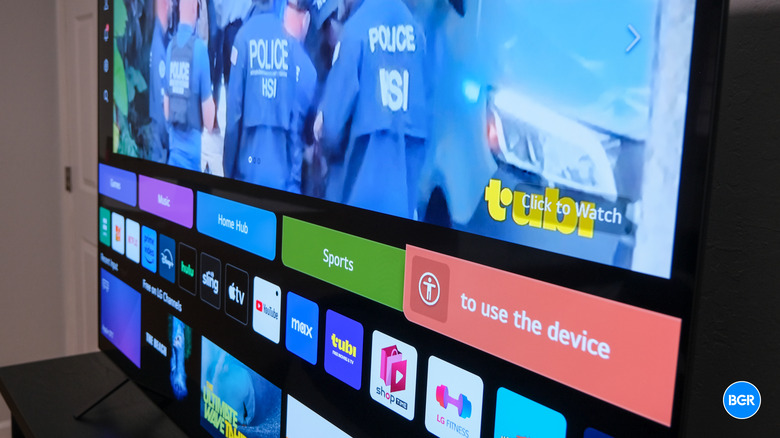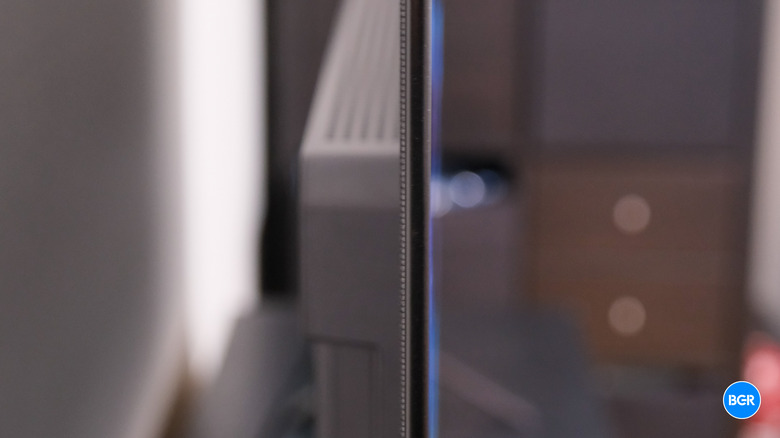LG B4 OLED Review: Stunning OLED At A Great Price
- Sleek and slim design
- Stunning OLED black levels
- Excellent reflection-handling
- Great software features
- Reasonable price (for OLED)
- Non-removable power cord
| Buy From | List Price | Sale Price | |
|---|---|---|---|
| Amazon | $1396.99 | $1399.99 | See It |
We may receive a commission on purchases made from links.
While the likes of Mini-LED and Micro-LED display panels are getting better and better, OLED TVs are still the king of accurate black levels. LG has pioneered the use of OLED for some time now, and it offers a number of OLED models at a range of prices. The LG B4 OLED is the entry-level OLED TV in LG's 2024 lineup, offering those deep black levels at a much lower price than LG's top-tier models.
But while Mini-LED TVs can't achieve the same controlled black levels as OLED TVs just yet, they do have other advantages, like high levels of brightness. This is an area where OLED TVs have traditionally struggled, though, in recent models, Samsung and LG have radically improved on brightness for their top-of-the-line options.
The LG B4 OLED, of course, is not at the top of LG's line. Does it suffer from brightness issues enough to go for a Mini-LED TV like the Hisense U8N or TCL QM8 instead? I've been using the LG B4 OLED TV for a while now to find out.
LG B4 OLED specs
| Display size | 55, 65, 77 inches |
| Resolution | 3840 x 2160 |
| Display type | OLED |
| Refresh rate | 120Hz |
| Ports | 4 x HDMI 2.1, USB 2.0, optical, ethernet |
| HDR support | HDR10+, Dolby Vision |
| Software | LG WebOS |
| Price | $1,699.99 – $3,399.99 |
Nice design with some functional issues
The LG B4 OLED may not be as incredibly slim as the Samsung S95D nor as premium as the LG G4 OLED, but it's still a well-built TV with a decently modern design.
Unlike some recent TV models, the LG B4 OLED opts for feet instead of a center-mounted stand, as has become the trend. The feet still look fine, and they were sturdy, too. On the 65-inch model that I'm reviewing, they were wide enough to place a smaller soundbar like the Sonos Beam between them. However, a wider soundbar will have to be placed in front of the feet.
There are some things that I didn't love about this TV's design, though. For example, on the back of the TV, there is a non-removable power cable, which could cause issues if the cable gets damaged. Even on a TV in this price range, a power cable should be removable and replaceable. Additionally, two of the HDMI ports are rear-facing instead of side-facing, and if you plan on mounting your TV, that could cause issues.
At first glance, the TV looks relatively thin, thanks in large part to the two-stage design. In the center of the back is a thicker area where the ports are, along with the processors and other computing components, but the outside of the TV is nice and thin, helping make it look a little more impressive than it otherwise would. I like this design in general and found that the TV looked premium overall. It is largely built from plastic, but that's to be expected, and it still looked good.
Four HDMI 2.1 ports
The LG B4 OLED has four HDMI ports on the back, and unlike many other options in this price range, all four of them are HDMI 2.1 ports. That means that you can connect your modern consoles to any of the ports and take full advantage of variable refresh rate technology. One of the ports supports HDMI eARC, and other ports on offer include an optical port and USB ports.
It's a good selection and everything you'll need in 2024.
A remote with a slight learning curve
The LG B4 OLED comes with LG's Magic Remote, which is a remote that I have a bit of a love-hate relationship with. While other TVs are shipping with remotes that only control software, the Magic Remote still has controls for channels, which you might find to be a good thing. The remote is thicker than most other remotes these days. However, it does have larger AA batteries and added functionality, like the ability to point at objects on the screen to select them, and there's also a scroll wheel in the center of the direction buttons.
The remote does have quick access buttons for streaming services, and on this remote, you'll get access to Netflix, Prime Video, Disney+, and Sling. There's also a button for LG Channels and Alexa, which is nice if you use Alexa. If you're like me, you'll end up mostly using an Apple TV remote anyway, but most will be able to get used to the LG Magic Remote and how it works.
Decent software and great smart home support
As we would expect, the LG B4 OLED ships with LG's WebOS software, which is decently well-designed, though many will prefer the likes of Google TV. That said, I don't mind WebOS, and it supports all your favorite streaming services. The interface has changed quite a bit over the last couple of years, and it's relatively easy to access your favorite streaming services, though there are some annoying ads in the UI.
Thankfully, the TV ships with other smart features that can help make it useful for different use cases. It supports Apple's HomeKit, so you can add it to the Apple Home app and control it from there. It also has AirPlay 2 built into it, so you can stream content from your iPhone or other Apple device. Additionally, it supports Alexa and Google Assistant, and it even works with Matter.
The software experience on the LG B4 OLED is generally quite good, and it supports a solid set of smart features.
Stunning OLED performance and decent brightness
The LG B4 OLED delivers on OLED's biggest promise — by offering those infinite, true black levels, which in turn helps improve on contrast by widening the gap between the deepest blacks and brightest whites.
But the TV offers more than just deep blacks. OLED panels get some criticism for lacking brightness, and the B4 OLED isn't immune from that — it doesn't necessarily offer the brightest image out there, but it does get reasonably bright in SDR. And it does have ways to mitigate the image quality from suffering too much from that lack of brightness. For example, the panel is pretty good at handling reflections, so bright lights in your room aren't as distracting as they otherwise would be.
And, to be fair, this generation of OLED panels is brighter than previous ones — even in the case of the lowest-end OLED TV, the LG B4. As a result, images look stunning in dark rooms, but they also look quite good in brighter environments. In HDR, images look beautiful. Setting aside the deep black levels, the TV is able to offer relatively vibrant colors overall, although perhaps not as impressive as some other non-OLED options in this price range.
The TV was great in other areas too. It handled motion excellently, making watching the Olympics even more exciting. And, there's a very low input lag, so gaming feels responsive overall.
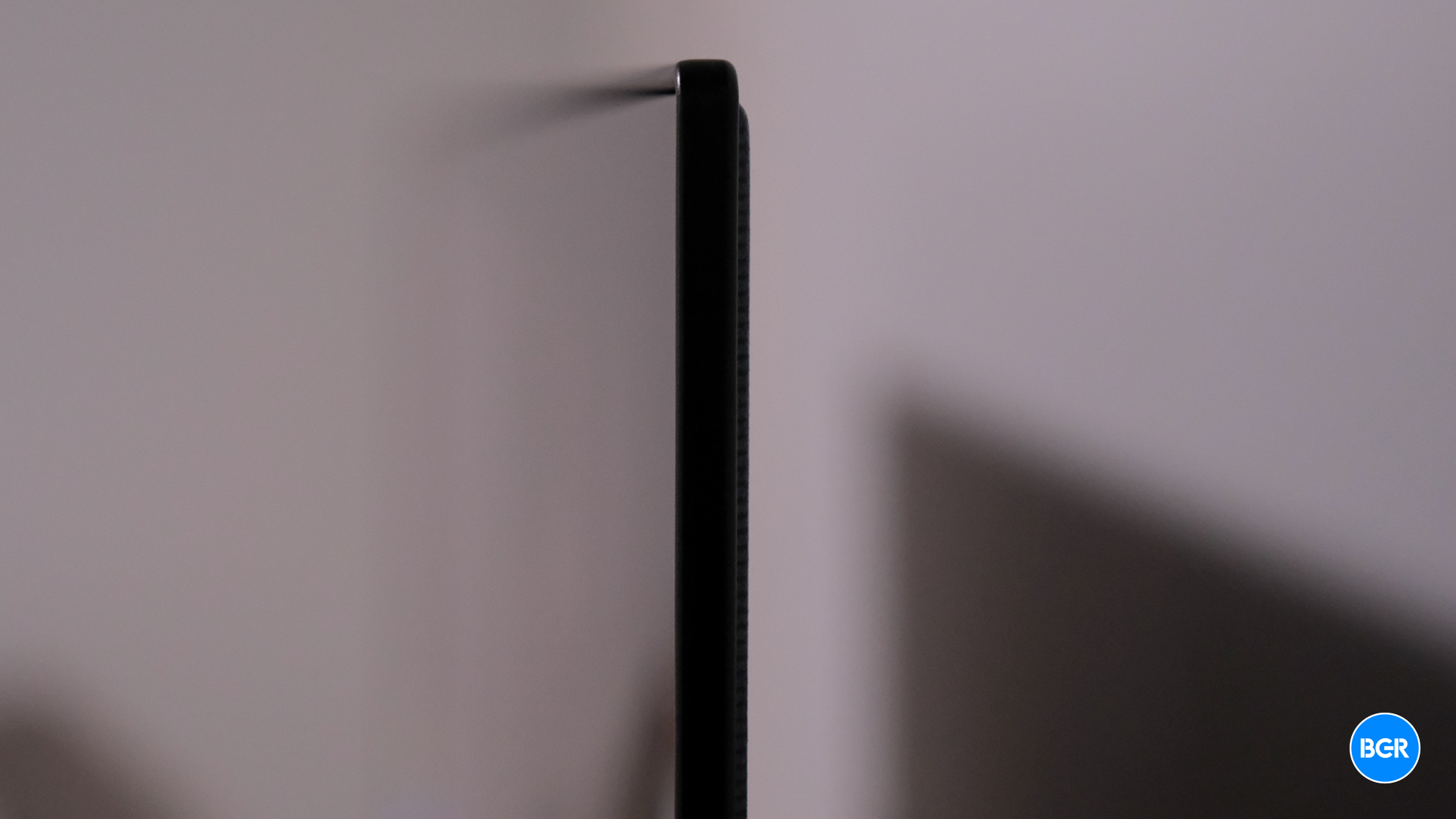
The LG B4 OLED represents a solid step forward for the B-series. Last year's B3 was a solid TV, but it suffered much more from a lack of brightness, and wasn't as good as reflection-handling, essentially meaning that there were more significant trade-offs for going for an OLED TV in its price range. This year, that has been more or less fixed.
Get a soundbar
The LG B4 OLED has two speakers built into it, and while they're fine in a pinch, they're far from well-rounded or offering depth. They can emphasize dialog decently well, but there isn't a ton of bass, and it's worth buying even a cheaper soundbar to use alongside the TV if you can.
Again, the speakers are fine in a pinch, but investing a little cash will help a lot.
Conclusions
The LG B4 OLED represents an excellent way to get that OLED quality at a low price. The TV isn't as bright as some of the competition, but it gets around this relatively easily. If you want a super bright TV, it's worth looking elsewhere, but the B4 OLED still stuns in dark and well-lit environments alike. Generally speaking, the B4 is the best way to get an OLED TV without paying G4-like prices. As a side note, the B4 is also an excellent TV to get as a large computer monitor.
The competition
Perhaps the biggest competition to the LG B4 OLED comes in the form of the Samsung S90C, which is slightly more expensive than the LG TV. The S90C can get a little brighter, and displays a wider color gamut, however again, it's also a little pricier. If you can stretch your budget to get the S90C, it may be worth doing so, as it is a better TV overall — but you certainly won't be disappointed with the LG B4 OLED.
Should I buy the LG B4 OLED?
Yes. You should also consider the Samsung S90C, but the LG B4 OLED is a stunning TV.
